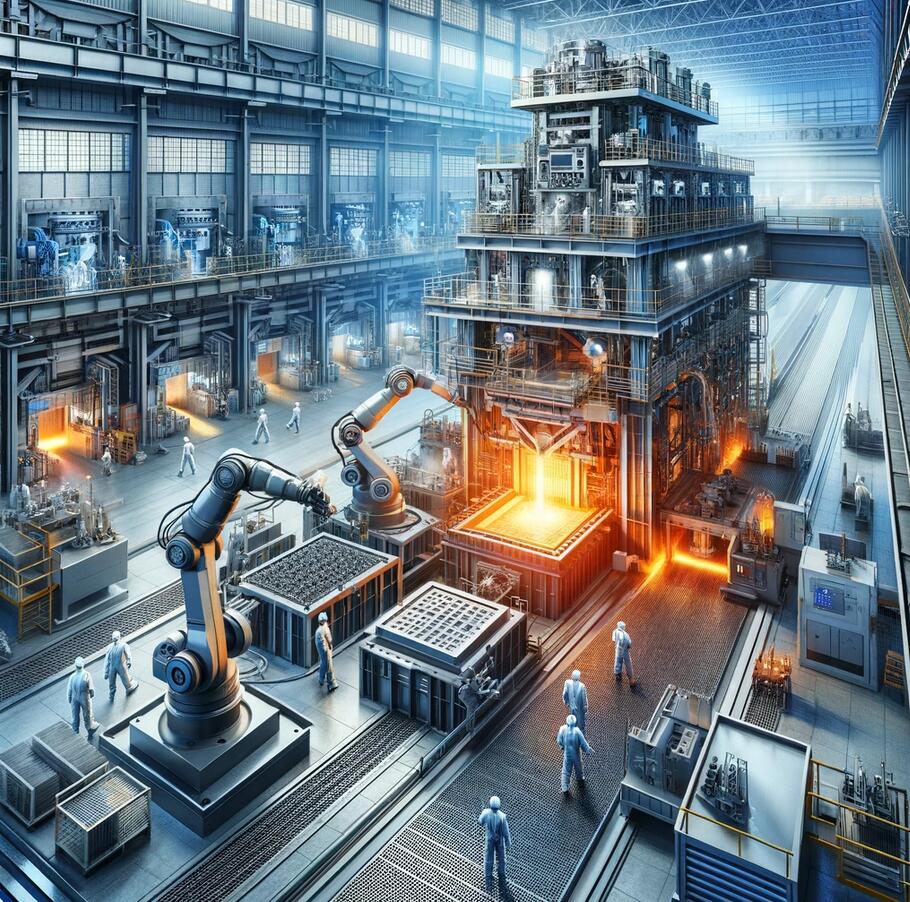Steel Castings Manufacturer: Pioneering Quality and Innovation
The world of steel castings is both intricate and fascinating. As a foundational component in various industries, steel castings are crucial in developing high-quality, durable, and innovative products. This article delves into the art and science behind steel casting, highlighting the processes, technological advancements, and quality standards that define this dynamic industry.
The Art of Steel Casting
Steel casting is a manufacturing process that involves melting steel and pouring it into a mold to obtain a specific shape or design. This technique is known for its versatility and ability to produce components with complex geometries and high-performance characteristics.
Types of Steel Casting Methods
- Investment Casting: Known for its precision, this method involves creating a ceramic mold around a wax pattern, which is then melted away, leaving a cavity for the steel.
- Sand Casting: This traditional method uses sand molds and is favored for its cost-effectiveness and ability to create large components.
The Role of a Steel Castings Manufacturer
Steel castings manufacturers are at the heart of this industry. They are responsible for shaping steel into desired forms and ensuring that these components meet stringent quality and performance standards.
Meeting Industry Standards and Certifications
Manufacturers adhere to various international standards, such as ISO and ASTM, to guarantee the reliability and safety of their products. Certifications are crucial in demonstrating a manufacturer’s commitment to quality.
Technological Advancements in Steel Casting
The steel casting industry has seen significant technological advancements recently. These innovations have revolutionized the way steel components are designed, produced, and inspected.
Impact of Technology on Quality and Efficiency
- 3D printing in steel casting allows for producing components with complex geometries, previously impossible or too costly to manufacture.
- Automation in manufacturing processes has increased efficiency, consistency, and safety in steel casting facilities.
Quality Control and Standards
Quality control is paramount in steel casting manufacturing. Every stage, from selecting raw materials to inspecting the final product, undergoes close monitoring to ensure top quality.
International Standards and Certifications
Adherence to international standards like ISO 9001 and ASTM specifications ensures that steel castings are reliable, durable, and meet the required performance criteria.
Custom Solutions for Diverse Industries
Steel castings are utilized in various industries, each with unique requirements. Custom solutions are, therefore, a significant aspect of this field, enabling manufacturers to cater to specific industry needs.
Case Studies in Various Industries
- In the automotive industry, steel castings are used for parts such as engine blocks and transmission housings, requiring high strength and durability.
- The aerospace industry benefits from precision cast steel components that contribute to the safety and efficiency of aircraft.
- Steel castings provide the structural integrity needed in buildings and infrastructure projects.
Steel castings are vital in numerous industries, offering strength, precision, and versatility. The advancements in manufacturing techniques and strict quality control measures ensure that steel castings will continue to be an essential part of industrial development. As technology progresses, the possibilities for innovation in steel casting seem limitless, promising even more efficient, sustainable, and high-quality solutions in the future.
Sustainability and Environmental Considerations
The steel casting industry increasingly prioritizes sustainability and reduces environmental impact. Manufacturers of steel castings are increasingly adopting environmentally friendly practices to mitigate their carbon footprint and promote sustainable development.
Eco-friendly Practices in Manufacturing
- Recycling: Steel is one of the most recycled materials in the world. Manufacturers are using recycled steel to reduce waste and conserve natural resources.
- Energy Efficiency: Advanced technologies are being used to lower energy consumption in the steel casting process, significantly reducing the industry’s environmental impact.
- Emission Reduction: New technologies are being developed to reduce harmful emissions in the steel casting process, leading to cleaner air and a healthier environment.
Future Trends in Sustainable Manufacturing
The future of steel casting manufacturing is closely tied to sustainable practices. Innovations in material science and process engineering are expected to enhance the eco-friendliness of this industry further, making steel castings a key player in the global push towards sustainability.
Choosing the Right Steel Castings Manufacturer
Selecting the right manufacturer is crucial in ensuring the quality and reliability of steel castings. There are several factors to consider when choosing a steel castings manufacturer.
Factors to Consider
- Experience and Expertise: Look for manufacturers with a proven track record and expertise in your specific industry.
- Technology and Capabilities: Assess the technological capabilities of the manufacturer, including their ability to provide custom solutions.
- Quality Certifications: Ensure that the manufacturer adheres to international quality standards and possesses the necessary certifications.
- Customer Service: A manufacturer’s commitment to customer service is indicative of their reliability and the quality of their products.
Assessing a Manufacturer’s Capabilities and Reputation
Researching a manufacturer’s past projects, client testimonials, and industry reputation can provide valuable insights into their capabilities and reliability. Engaging with industry forums and consulting with experts can also aid in making an informed decision.
The world of steel castings is diverse and dynamic, playing a critical role in numerous industries. From the art of creating intricate shapes in steel to adopting sustainable manufacturing practices, steel casting manufacturers are continuously evolving to meet the demands of modern industry. We expect to see further innovations and improvements in this field as technology advances. Choosing the right manufacturer is essential for ensuring quality and performance in steel castings, and as the industry moves forward, the emphasis on sustainability and technological advancement will only grow. The future of steel castings is bright, with endless possibilities for innovation and improvement.

